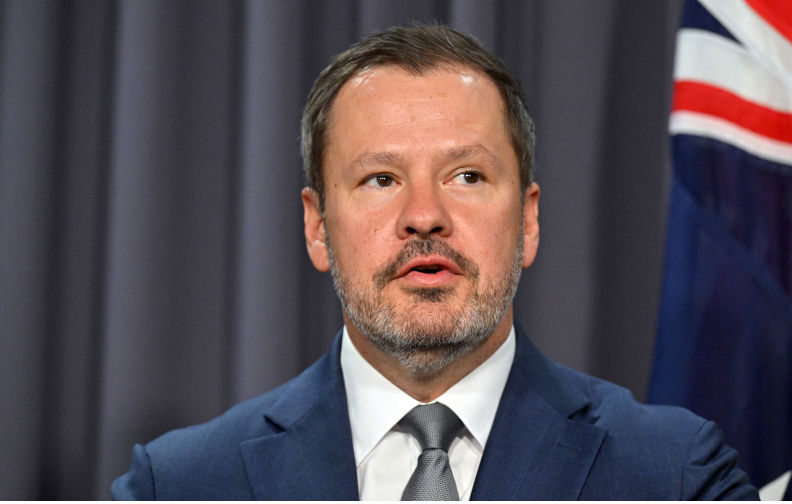
Pearlcasts
As we review 2025, the temptation is to look for neat summaries and settled conclusions.
Go to Pearlcasts
7 January 2026
Rethinking the call for a royal commission after Bondi
After initially calling for a federal royal commission into the Bondi attack, Greg Barns and Kym Davey explain why they have changed their minds – and why existing legal processes may offer greater accountability without inflaming division.

7 January 2026
Best of 2025 - Why key leaders attended China’s military parade – Asian Media Report
In Asian media this week: Nations “must adapt” to new power politics. Plus: Raid “will hurt” South Korea’s US investments; Trump’s strategic shift towards Pakistan; What’s next after Nepal’s 8 September massacre; Thailand gets its first minority government; Why India has the world’s biggest diaspora.

7 January 2026
Best of 2025 - If we want to win the Pacific, we must first listen – and stop blaming China for everything
A 9 September editorial in The Sydney Morning Herald, titled China and Australia in a high-speed race to win control of the Pacific, offered a vivid picture of the daily contest for influence in the region.

7 January 2026
Best of 2025 - Rupert Murdoch’s greatest scoop
On Wednesday 25 February 1976, The Australian published a sensational front page story headlined Iraq promises $US500,000 to pay Labor’s debts/Whitlam in secret Arab election deal.

7 January 2026
Best of 2025 - Climate change risk to our coastal cities
Confronting the nation’s coastal urban cities as it approaches 2055, 30 years on, will be both higher sea levels and air and water temperatures.

7 January 2026
Best of 2025 - The Liberal Party and Israel
The Liberal Party is correct in claiming Australia’s relations with Israel are at their lowest point ever. The real questions to be asked are: who is responsible, and how much does it matter?

7 January 2026
Best of 2025 - Best of 2025 - Who is a terrorist?
Since 7 October 2023 there has been a growth of the use of the allegation of terrorism for propaganda purposes.

7 January 2026
Best of 2025 - Albanese’s sliding doors moment on climate
Australian Prime Minister Anthony Albanese has just been handed an unflinching mirror at the Pacific Islands Forum.

7 January 2026
Best of 2025 - Courts brace for next wave of 'sovereign citizens'
When I wrote about the “Cavalcade of the Cretinous” in February 2022, I thought the anti-vaccination early incarnations of “sovereign citizens” were just a hopeless joke (“Summernats without the sophistication”) that would quietly go away.

7 January 2026
Best of 2025 - Intergenerational equity and tax reform
Much of the discussion about the need for tax reform to preserve intergenerational equity is confused. The main challenges facing young people, in particular, are the limitations on the supply of housing and climate change.

7 January 2026
Best of 2025 - NATO in Asia-Pacific: Dragging us into a fight we can’t win
Is the future of Australia and New Zealand really as NATO forts, armed to the teeth glaring menacingly at an ever-rising China?
Read our series
Latest on Palestine and Israel

7 January 2026
Best of 2025 - The Liberal Party and Israel
The Liberal Party is correct in claiming Australia’s relations with Israel are at their lowest point ever. The real questions to be asked are: who is responsible, and how much does it matter?

7 January 2026
Best of 2025 - Best of 2025 - Who is a terrorist?
Since 7 October 2023 there has been a growth of the use of the allegation of terrorism for propaganda purposes.

6 January 2026
Bondi, Christchurch and what a Royal Commission can – and can’t – do
After four ideologically driven attacks in six years, Australia is again asking how to respond. The Christchurch Royal Commission offers a nearby example of how inquiry, grief and prevention can be approached.

6 January 2026
Best of 2025 - Re-elected Albanese Govt must condemn Israel's brutality and cut ties
On 5 May, the Israeli Parliament approved plans to annex and occupy Gaza. These plans have been discussed for months. This is a blatant mission to ethnically cleanse Gaza, advancing Israel’s colonial intentions to take over the territory and rid it of Palestinians.

6 January 2026
Best of 2025 - Judaism and Zionism are not the same
No doubt about it. We live in a topsy-turvy world. How Kafkaesque can it get, when some of Zionism’s most fervent supporters have been politicians like Scott Morrison, Peter Dutton or — God help us — the Mad King of Mar-a-Lago?

5 January 2026
Best of 2025 - Australia must defend International Criminal Court
If it were China or Russia, the imposition of sanctions and threats of harm to prosecutors and judges of the International Criminal Court would be front page news in Australia.
27 December 2025
‘Australians for Humanity’ demand the invitation to Israel’s President be withdrawn immediately
The Israel President cannot be welcomed in Australia. The government he represents has been found by the International Court of Justice to have breached international law: the Netanyahu regime has committed a range of international crimes against humanity including war crimes, apartheid, illegal occupation and ethnic cleansing.

22 December 2025
This one’s on Netanyahu, not Albanese
The Bondi massacre sits within a wider international context that has reshaped public attitudes to Israel, antisemitism and protest, complicating how grief, fear and responsibility are understood in Australia.

Israel's war against Gaza
Media coverage of the war in Gaza since October 2023 has spread a series of lies propagated by Israel and the United States. This publication presents information, analysis, clarification, views and perspectives largely unavailable in mainstream media in Australia and elsewhere.
Download the PDFLatest on China

7 January 2026
Best of 2025 - If we want to win the Pacific, we must first listen – and stop blaming China for everything
A 9 September editorial in The Sydney Morning Herald, titled China and Australia in a high-speed race to win control of the Pacific, offered a vivid picture of the daily contest for influence in the region.

6 January 2026
Best of 2025 - Who’s afraid of big, bad China?
Be afraid, be very afraid. But not of China. To the contrary, the proper management of co-operative relations with China is essential to Australia’s future.

5 January 2026
Best of 2025 - Australia is one trade deal away from backing authoritarians, says Taiwan
In the grand tradition of diplomatic overreach, Taiwan's deputy foreign minister recently offered some sweet and spicy talking points to our media: semiconductors are tanks, China is akin to WWII Germany, and if Australia doesn't fast-track Taiwan into the CPTPP, we might all wake up speaking Mandarin under a fascist AI regime, as reported by News Corp and 7 News.

Support our independent media with your donation
Pearls and Irritations leads the way in raising and analysing vital issues often neglected in mainstream media. Your contribution supports our independence and quality commentary on matters importance to Australia and our region.
DonateMore from Pearls and Irritations

6 January 2026
Best of 2025 - An economic reform agenda for Labor

6 January 2026
Best of 2025 - Mamdani’s victory bought hope to Gaza

6 January 2026
Best of 2025 - Brave new world

6 January 2026
Best of 2025 - Who’s afraid of big, bad China?
Latest letters to the editor
The people and the common good
Chris Young — Surrey Hills, Vic
Can we discuss degrowth without the ideology?
Jenny Goldie — Cooma NSW
Getting submarines, or funding the US to get them
Les Macdonald — Balmain NSW 2041
Vast educational inequality
Les Macdonald — Balmain NSW 2041




